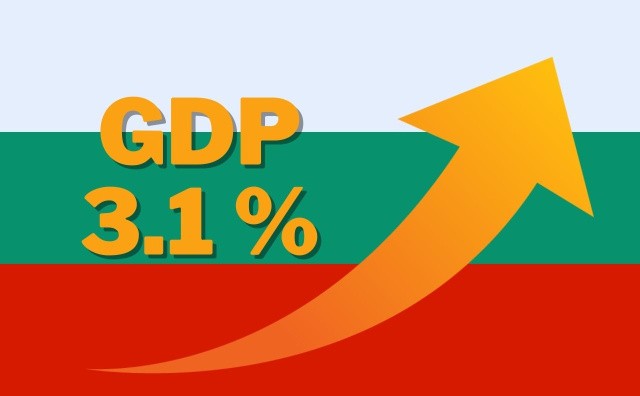In the second quarter of 2025, Bulgaria’s economy expanded by 3.1% year-on-year, while showing a 0.7% increase compared to the first quarter, according to data released by the National Statistical Institute (NSI). Gross value added in the same period rose by 2.5%, signalling sustained activity across the country’s main economic sectors.
Preliminary GDP estimates indicate that the quarter-on-quarter growth was driven primarily by a 0.9% increase in final consumption and a 0.6% rise in exports of goods. Final consumption remains the dominant component of Bulgaria’s GDP, accounting for 80% of the total, equivalent to 41,329 million leva (over 20 billion euros). Gross capital formation contributed 19.1% of GDP, totaling 9,896.6 million leva (nearly 5 billion euros). The foreign trade balance remained positive, supporting overall growth.
Seasonally adjusted data also point to a 0.6% expansion compared to the fourth quarter of 2024, reflecting steady economic momentum. For comparison, the first quarter of 2025 saw a similar year-on-year growth of 3.1%, reinforcing the consistency of Bulgaria’s recent economic performance.
In monetary terms, GDP in the first quarter of 2025 was estimated at 45,617.3 million leva. This translates to a per capita GDP of 7,093 leva. Using the average exchange rate for the quarter of 1.859196 leva per US dollar, this corresponds to approximately 24,536 million dollars in total GDP, or 3,815 dollars per person. In euros, the GDP amounted to 23,324 million, with per capita income reaching 3,626 euros.
The gross value added produced by all sectors of the Bulgarian economy in the first quarter of 2025 reached 39,623.8 million leva, underscoring the broad-based contribution of national industries to the country’s overall economic growth.

